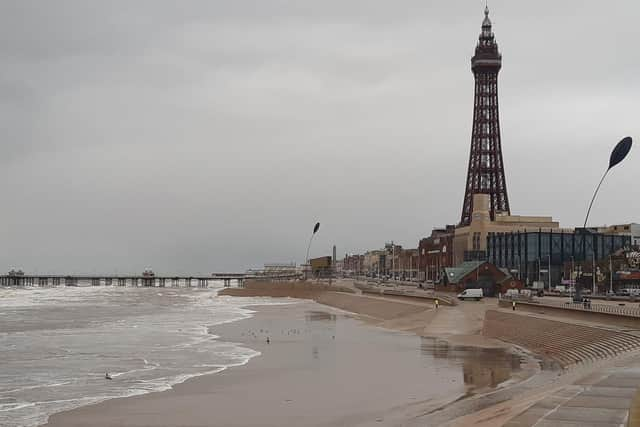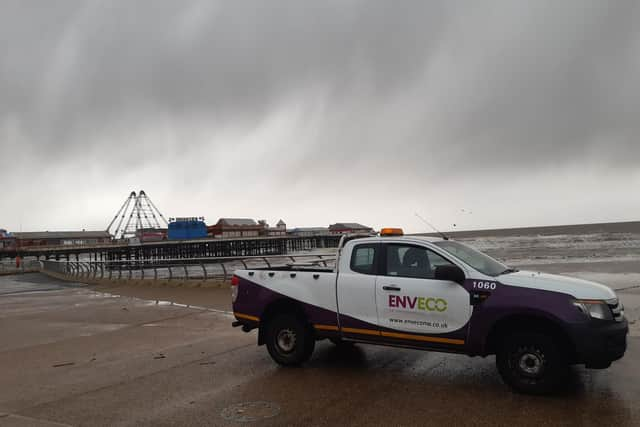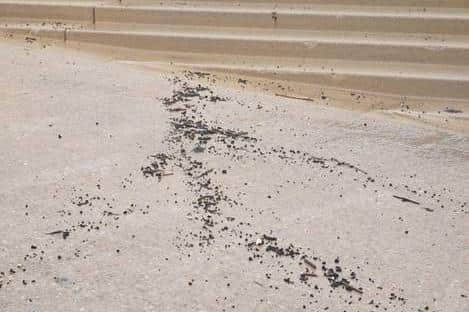Oil spill is 'very bad news' for Fylde coast's marine wildlife
and live on Freeview channel 276
Oil spills can potentially devastate coastal environments, resulting in dire consequences for seabirds, fish, and marine mammals such as dolphins and seals.
Dr Emily Baxter, senior marine conservation officer at the North West Wildlife Trust, said: “While the impact of Monday’s pipeline leak is still unclear, an oil spill of any size poses a risk to seabirds, other marine life and habitats.
Advertisement
Hide AdAdvertisement
Hide Ad“Our greatest concern is for the welfare of seabirds, offshore populations of sea ducks and divers in Liverpool Bay, coastal wading birds that feed and roost in our estuaries and along the coastline, as well as fish and other marine life that live and feed in our coastal waters.


“We are also concerned about the effect that the spill will have on vital coastal habitats such as mud and sand flats, saltmarsh and sand dunes. Thousands of migratory and overwintering birds, as well as fish, shellfish, crabs and other wildlife rely a variety of different coastal habitats found across the Lancashire coastline.
“The high winds of Storm Dudley have helped to disperse the oil spill. It is now being recorded to be washing up in the form of small tar balls, rather than a slick, which can smother birds, wildlife and habitats. However, tar balls can be very persistent in the marine environment, travel vast distances and be difficult to clean up depending on their size and where they wash up.
“If ingested, toxins in oil and tar can have a significant impacts on the survival and breeding ability of marine life from birds and fish, to invertebrates and marine mammals, like seals, whales and dolphins.”
Advertisement
Hide AdAdvertisement
Hide AdCoincidentally, Monday’s oil spill occurred on the 26th anniversary of what has been called ‘Wales’ worst ecological disaster’, when 72,000 tonnes of crude spilled from the Sea Empress oil tanker off the Pembrokeshire coast, killing more than 2,000 seabirds.


READ: Clean-up on chained-off Blackpool beach after 'tar balls' wash up from offshore oil spillMel Greenhalgh, of the South Shore-based Brambles Wildlife Rescue, said: “Our worry is that tar balls caused by the break in the pipeline will affect our local seabirdsin particular. Birds walking on the beach will pick up these on their feathers, which affected their waterproofing and they can struggle to regulate their own body temperatures. If they lose their waterproofing, this can be life-threatening due to exposure to the elements.
“Birds can also ingest the tar when they try to preen their feathers with their beaks or bills, which provides a poor prognosis.
“Tar balls can also be eaten by various wildlife which further causes great risk.
Advertisement
Hide AdAdvertisement
Hide Ad“Another species that may be affected locally are the dolphins off the coast; they can aspirate the oil in the water into their lungs which can have fatal conseqeuences. This is very bad news for our wildlife on the Fylde coast.”


Dr Baxter added: “We might think that oil spills were a thing of the past but this is a stark reminder of our continued reliance on fossil fuels. We need to move away from our dependence on dirty fossil fuels, for the benefit of the climate, planet and wider society, and also our wildlife, which is already under threat from a number of other human impacts.
“It is important that if anyone finds any tar balls on the beach or affected wildlife that they do not touch them. Clean up teams are already working to remove the contamination. Tar balls can be reported to the local council and affected wildlife should be reported to the RSPCA as soon as possible.”
An RSPCA spokesman said: "The RSPCA is aware of this incident and is in contact with relevant authorities.
Advertisement
Hide AdAdvertisement
Hide Ad"We are not presently aware of any impacted wildlife. We are continuing to monitor the situation and would urge anyone with concerns for the welfare of an animal to contact our emergency line.
“Oil spills can pose all sorts of risks to wildlife - including marine birds, mammals, fish and other animals so it is vital they are treated as soon as possible.
"Where dogs are allowed to be walked on beaches in impacted areas, we also urge caution and for owners to steer clear of walking on the beach, or allowing dogs to swim in the sea, until clean up operations have been completed and these tar balls associated with this oil spill have been removed."
Suspected incidents can be reported to Blackpool Council on 01253 477600. Concerns for animal welfare can be called into the RSPCA emergency line on 0300 1234 999.
Thanks for reading. If you value what we do and are able to support us, a digital subscription is just £1 for your first month. Try us today by clicking here.
Comment Guidelines
National World encourages reader discussion on our stories. User feedback, insights and back-and-forth exchanges add a rich layer of context to reporting. Please review our Community Guidelines before commenting.